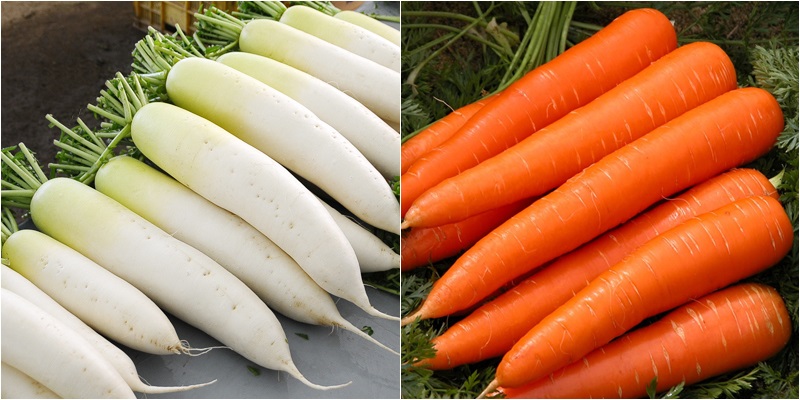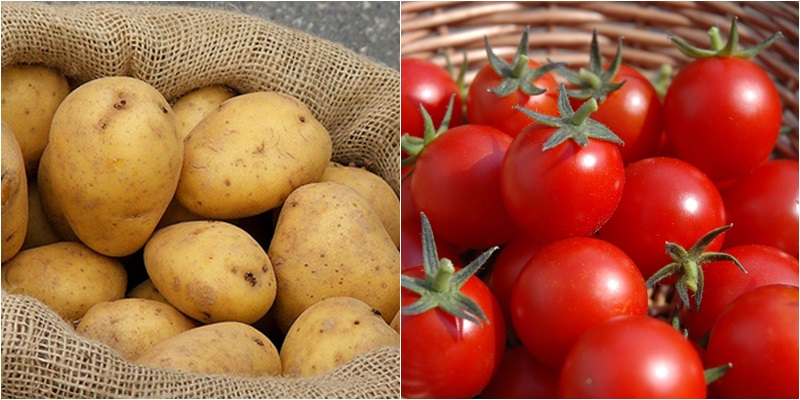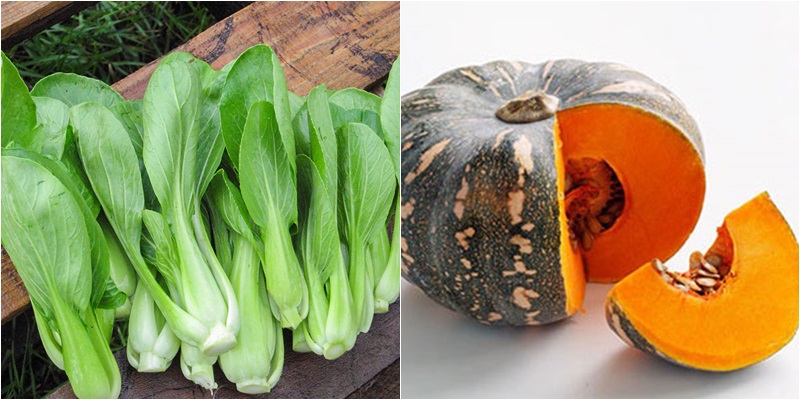Turnips and Carrots
Avoid cooking turnips and carrots together. Turnips are rich in vitamin C, while carrots contain an enzyme that breaks down this vitamin.
Combining these two vegetables will significantly reduce the amount of vitamin C in turnips. So, when preparing meals, be mindful and avoid cooking turnips and carrots together.

Potatoes, Sweet Potatoes, and Tomatoes
Dishes containing tomatoes, potatoes, and sweet potatoes can cause digestive issues when consumed together. The combination of substances in these ingredients can lead to indigestion, stomach pain, diarrhea, and other discomforts.
To avoid these problems, refrain from including tomatoes with potatoes or sweet potatoes in your recipes.

Tomatoes and Cucumbers
Cucumbers contain an enzyme that breaks down vitamin C, so when combined with tomatoes in a dish or eaten together, the vitamin C in tomatoes is lost due to the cucumber’s enzyme.
To maximize the absorption of vitamin C and other nutrients, it’s best to prepare and consume these vegetables separately.
Spoon Cabbage and Pumpkin
Combining spoon cabbage with pumpkin will result in the destruction of vitamin C in the cabbage due to the enzymes present in pumpkin. The dish won’t provide as many nutrients as you’d hope, so it’s best to cook these vegetables separately.

Source: phunutoday.vn
Take note of these vegetable combinations to create more nutritious and delicious meals. Share your knowledge of incompatible food pairings in the comments below!
“The Ultimate Beauty Hack: Discover the Power of a Single Lemon”
“Don’t underestimate the power of the humble lemon. This citrus fruit is a beauty multitasker, offering a natural and cost-effective way to enhance your skin and hair. With its vibrant color and refreshing scent, the lemon is a versatile ingredient that can be used in a variety of DIY beauty treatments. So, why spend a fortune on store-bought cosmetics when you can unlock your skin’s radiance and achieve a natural glow with this humble fruit?”
The Top Foods That Should Never Be Refrigerated
Introducing the world of food storage: a delicate balance of preserving freshness and maintaining flavor. While the refrigerator is a handy tool for keeping your groceries in check, certain foods are better off outside its chilly confines. Uncover the surprising truth about common foods that thrive when kept at room temperature, and learn how to optimize your kitchen habits for the ultimate culinary experience. Prepare to rethink your food storage strategies and embrace a whole new world of flavor!
“Boost Your Child’s Immunity and Brain Power with This Common Vietnamese Fruit: A Four-Fold Vitamin C Punch”
“The humble guava is a nutritional powerhouse, packed with vitamins and minerals that offer a plethora of health benefits. Doctors and nutritionists alike rave about its exceptionally high levels of Vitamin C and Vitamin A, which are essential for boosting immunity, promoting eye health, and enhancing cognitive function in children. This unassuming fruit is truly a gift of nature, offering a delicious way to support your overall well-being.”




































